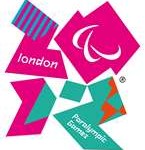London is about to experience Olympic fever again with the Opening Ceremony of the Paralympic Games taking place tonight. Already disabled athletes have started appearing in the city and interacting with locals and other visitors.
The Paralympics provide a great occasion to focus attention on the issues and difficulties faced by disabled people across the world. The BBC reported earlier today that:
“if Chinese athletes perform as well in the Paralympic Games [a China did in the Olympic Games] it could help change attitudes towards disabled people in China. The Beijing Paralympic Games in 2008 played a huge part in changing attitudes, but campaigners say China still has a lot to do”.
Locally, the Head of Scope Cymru has made a similar point in the context of a survey showing attitudes to disabled people are worsening in Wales.
Those of us interested in endangered languages might think of sign languages and the Deaf community (since all sign languages are endangered and subject to pressure from speakers of majority spoken languages), however, as UK Deaf Sport reminds us: “many Deaf people do not consider themselves disabled, particularly in physical or intellectual ability. Rather, we consider ourselves to be part of a cultural and linguistic minority”. There is in fact a separate Deaflympics, “the second oldest multi-sport and cultural festival in the world, with a proud history stretching back to the first Games in Paris, in 1924” and sanctioned by the International Olympic Committee. It was recently announced by Craig Crowley, President of the International Committee of Sports for the Deaf, that the next Summer Deaflympics will be held in Sophia, Bulgaria in 2013 (following the cancellation of plans for Athens).
The visibility (no pun intended) of sign languages among linguists, and the wider community, has been slowly increasing in recent years, however, like other minorities and the disabled there is still some way to go. For example, the list of DoBeS projects of the Volkswagen Foundation does not include any sign languages at all, despite the information for applicants [.pdf] stating that “documentation projects may focus on endangered dialects, moribund languages as well as sign languages”. The Endangered Languages Documentation Programme at SOAS has so far funded eight projects on sign languages, namely:
- Australian sign language by Trevor Johnson, Macquarie University
- Côte d’Ivoire sign language by Tano Angoua Jean-Jacques, University of Cocody at Abidjan
- a village sign language of India by Sibaji Panda, University of Central Lancashire
- Malian sign language by Victoria Nyst, Leiden University
- a village sign language in Bali by Connie de Vos, International Institute for Sign Languages and Deaf Studies
- Mardin sign language of Turkey by Ulrike Zeshan, University of Central Lancashire
- Mexican sign language by Claire Ramsey, University of California San Diego
- Inuit sign language by Joke Schuit, University of Amsterdam
Corpora for several of these are available in the Endangered Languages Archive at SOAS, namely Auslan, Malian sign, Indian village sign, and Inuit sign.
We have also run training events at SOAS designed to sensitise hearing researchers about sign languages, the most recent being a workshop in “Sign language documentation for linguists working with spoken languages” held in May 2012. The 2009 3L Summer School at SOAS included a plenary lecture (by Adam Schembri and published in Language Documentation and Description Volume 7) and a course on documentation of sign languages. The Summer School was attended by a number of Deaf students, and the constant presence of British Sign Language and American Sign Language was a factor in sensitising hearing students to the needs of their Deaf colleagues.
There seem to be mixed indicators of the current state of affairs, however. The 2010 3L Summer School in Leiden included a course on Documentary Sign Linguistics, and a course on Advanced Sign Language Documentation, however the programme for this year’s 3L Summer School in Lyon focussed on revitalisation and did not highlight the situation of sign languages explicitly. Similarly, next year’s Linguistic Society of America 2013 Linguistic Institute has no courses on sign languages and linguistics.
Increasing interest is apparent in some places, however. Colleagues in the Department of Linguistics and Multilingual Studies at Nanyang Technological University in Singapore reported to me recently that their undergraduate course “Deaf Culture and Sign Language” has been heavily oversubscribed by students wishing to learn about “the socio-cultural world of Deafness and the history and use of sign language”.
It would be interesting to learn more about what is happening in other parts of the world in relation to sign languages and linguistics.

 Follow
Follow
Thanks for this posting. I agree that mainstream documentary linguistics has been a bit slow in accepting sign languages into the fold, but awareness is growing of the endangered status of all sign languages, even ASL, and we need to learn more about the challenges of documenting this modality of language use. The International Conference on Language Documentation & Conservation series has so far only featured a single presentation on sign language documentation: a poster on Mexican Sign Language by Claire Ramsey of UCSD in 2009. It would be good to see more abstracts on the topic for the next ICLDC.
A colleague on Facebook has drawn my attention to the just published reference book Sign Language: An International Handbook which “aims to provide a concise and comprehensive overview of the state of the art in sign language linguistics. … Crucially, all topics are presented in a way that makes them accessible to linguists who are not familiar with sign language linguistics.” Perhaps this volume contains material that will connect to the concerns of other endangered languages researchers (and linguists more generally) but with a price of EUR 399 (USD 419) I doubt that many or us, especially those in developing countries, will get to see what’s inside the covers.